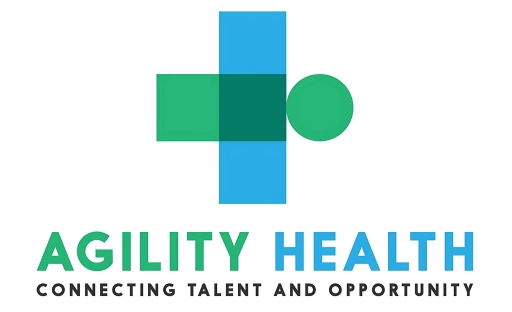Why Healthcare Settings Should Use Agencies for Specialised Staffing Needs
Introduction:
Finding and retaining specialised staff in healthcare settings like hospices, nursing homes, and hospitals is a significant challenge. The recruitment process for specialised professionals can be lengthy and complex, often requiring specific expertise that in-house HR teams may not possess. This delay can create gaps in care, affecting patient outcomes and staff morale. Utilising an agency for specialised staffing can be an effective solution, providing timely access to qualified professionals while allowing internal HR teams to focus on their core responsibilities. In this blog post, we’ll explore why agencies are ideal for addressing the specialised staffing needs in healthcare settings.
1. Speedy Access to Specialised Talent
In healthcare, the need for specialised staff can arise unexpectedly due to various factors such as sudden patient influx, staff turnover, or extended leaves of absence. The recruitment process for specialised positions—like palliative care nurses, geriatric specialists, or mental health professionals—can take weeks or even months, leading to potential care gaps.
Benefits of Using Agencies:
- Rapid Deployment: Staffing agencies can quickly provide skilled professionals who are ready to step in, minimising disruptions in care and ensuring that patients continue to receive the attention they need.
- Pre-vetted Candidates: Agencies maintain a pool of qualified candidates who have already been vetted for their skills and experience, allowing healthcare settings to fill urgent vacancies without a lengthy recruitment process.
- Flexibility: Hospitals and care facilities can request staff for short-term or long-term assignments, allowing them to adapt to fluctuating patient demands without committing to permanent hires.
2. Expertise in Recruitment
Recruiting specialised staff requires a deep understanding of both the role and the healthcare environment. In-house HR teams, particularly in smaller facilities, may lack the necessary expertise to effectively attract and select specialised talent.
How Agencies Bridge the Gap:
- Industry Knowledge: Staffing agencies specialising in healthcare understand the specific qualifications and skills required for various roles, ensuring that only the most suitable candidates are presented to healthcare settings.
- Targeted Recruitment Strategies: Agencies utilise tailored recruitment strategies to attract specialised professionals, including leveraging industry networks and targeted advertising, which may be beyond the capabilities of in-house HR teams.
- Time-Saving: By outsourcing the recruitment process, healthcare facilities can save time and resources, allowing their HR teams to focus on other essential functions like employee engagement and retention.
3. Reduced Administrative Burden
The administrative tasks involved in recruiting specialised staff—such as writing job descriptions, conducting interviews, and performing background checks—can be overwhelming for in-house HR teams, especially when they are already stretched thin.
How Agencies Help:
- Comprehensive Services: Agencies manage the entire recruitment process, including sourcing, interviewing, and onboarding, which reduces the workload for in-house teams and enables them to concentrate on their core responsibilities.
- Streamlined Compliance: Agencies ensure that all candidates meet necessary licensing and certification requirements, mitigating the risk of non-compliance that can lead to costly penalties for healthcare settings.
- Less Paperwork: By using an agency, healthcare facilities can reduce the amount of administrative paperwork and the time spent managing staffing logistics.
4. Continuity of Care
Gaps in specialised staffing can lead to disruptions in patient care, negatively affecting both patient outcomes and staff morale. Maintaining continuity of care is essential, particularly in sensitive settings like hospices and nursing homes.
How Agencies Ensure Continuity:
- Immediate Coverage: Staffing agencies provide a reliable solution for covering shifts quickly, ensuring that specialised care is uninterrupted, even during staff shortages.
- Experienced Professionals: Agency workers often have diverse experience across various healthcare settings, allowing them to integrate quickly into teams and maintain continuity of care.
- Support for Permanent Staff: By filling in for absent specialised staff, agencies help reduce the burden on permanent employees, allowing them to focus on providing quality care without the stress of being understaffed.
5. Flexibility for Healthcare Settings
Healthcare settings must be able to adapt to changing patient needs and circumstances. Relying solely on permanent staff can lead to challenges in meeting these evolving demands.
How Agencies Provide Flexibility:
- Scalable Staffing Solutions: Agencies allow healthcare facilities to scale their staffing up or down based on immediate needs, ensuring they have the right number of specialised staff without overcommitting resources.
- Short-Term and Long-Term Options: Whether a healthcare setting requires specialised staff for a few weeks or several months, agencies can provide the necessary support, making it easy to manage staffing levels according to patient demands.
- Ability to Trial Candidates: Utilising agency staff allows healthcare facilities to assess specialised candidates before making a permanent hiring decision, reducing the risk of costly hiring mistakes.
Conclusion
In the ever-evolving landscape of healthcare, the need for specialised staff is paramount, especially in hospices, nursing homes, and hospitals. Utilising staffing agencies can provide a timely and effective solution to fill specialised roles, alleviating the pressure on in-house HR teams and ensuring that patients receive the care they need without delay. By leveraging the expertise, speed, and flexibility that agencies offer, healthcare settings can maintain high standards of patient care while managing their staffing needs efficiently. Embracing agency partnerships is not just a smart staffing strategy—it’s a commitment to quality care and better outcomes for patients and staff alike.

